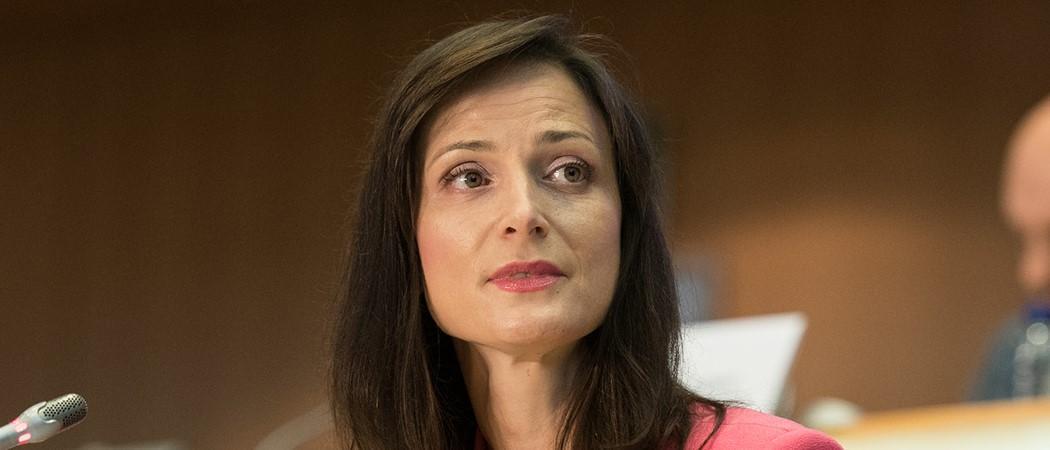The new measures go one step further than the first set of sanctions announced in March

Mariya Gabriel, EU Commissioner for innovation, research, culture, education and youth. Photo: European Union
The European Commission will terminate ongoing grant agreements with Russian public organisations, EU research commissioner Mariya Gabriel has announced today, as EU member states agree on a new set of economic sanctions on Russia.
According to a statement released today, the European Commission will kick out Russian partners from ongoing projects under Horizon 2020, Horizon Europe and Euratom, after it had announced on 3 March that it would only “suspend” payments to Russian institutions involved in EU-funded research and innovation projects.
“I have asked my services to terminate ongoing grant agreements and subsequent payments to Russian public bodies or related organisations,” said Gabriel.
Back in March Gabriel announced payments would only be suspended, while the signing of new grant agreements would be put on hold.
Germany was the first EU country to announce a blanket ban on research cooperation a day after the invasion. Other governments in the EU followed suit and announced various plans to halt science cooperation with Russia.
According to the Commission’s plan published today, the EU will also cancel the participation of Russian public entities or bodies in Marie Skłodowska-Curie Actions (MSCA), but notes that Russian individuals will still be able to apply for MSCA fellowships and European Research Council (ERC) principal investigator grants, but those applications will go through a “thorough screening against the EU sanctions list”.
Gabriel also asked for the participation of Russian public entities or bodies in all ongoing and future Erasmus+ actions to be terminated. The EU will no longer make any payments to Russian public bodies or related organisations.
Russian students, scholars and academic staff will remain eligible for short term-exchanges and Russian students and scholars will remain eligible for degree mobility in Erasmus+ and the European Solidarity Corps. Applicants will go through the same review process as MSCA and ERC individual candidates, to ensure individuals on EU sanctions list are disqualified.
The new science sanctions come on the same day EU member states reached an agreement on how to punish Russia next, after the Ukrainian government discovered evidence of mass killings in territories formerly occupied by the Russian army since the beginning of the invasion on 24 February. Footage from towns on the outskirts of Kyiv show the Russian army murdered civilians and abandoned their bodies in the street or buried them in mass graves.
Earlier this week, Gabriel also announced the Commission is preparing a €25 million direct aid package of Marie Skłodowska-Curie (MSCA) grants, to be managed by a consortium of ten research organisations, universities and NGOs, to help researchers from Ukraine. The European Parliament and research stakeholders are now demanding the Commission comes up with a permanent fund for scholars at risk.





 A unique international forum for public research organisations and companies to connect their external engagement with strategic interests around their R&D system.
A unique international forum for public research organisations and companies to connect their external engagement with strategic interests around their R&D system.